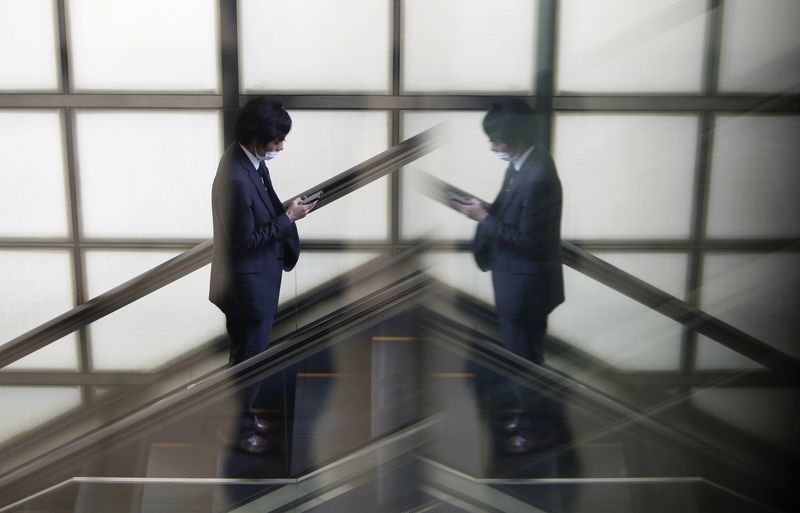Street Calls of the Week
By Tetsushi Kajimoto and Izumi Nakagawa
TOKYO (Reuters) - Most Japanese firms plan to raise salaries by at least the same degree as last year, but even two years of wage hikes will not be enough to compensate workers for increases in the cost of living, a Reuters poll showed.
Since taking office in late 2012, Prime Minister Shinzo Abe has heaped pressure on businesses to lift wages - seen as essential if his stimulus policies are to succeed in boosting consumer spending and dragging the world's third-largest economy decisively out of decades of deflation and stagnant growth.
In results that come a day before Japan's biggest firms announce wage plans following annual talks with labor unions, the Reuters Corporate Survey showed 55 percent of firms plan to lift wages by the same extent as last year. Another 14 percent say they are set to boost wages more than they did last year.
"If big companies raise wages substantially again this year, we may have no choice but to follow suit in order to secure workers regardless of our earnings," a manager at a transportation firm wrote.
But for employees and Abenomics, the glass is set to look more empty than full, as the increases will not be enough to offset a 3 percentage point increase in the national sales tax that went into effect last April and unexpectedly tipped the economy into recession.
When asked how much they expect wages to have increased since the tax hike if plans for this year were included, three quarters of firms expected rises of between zero and 2 percent. Another 17 percent said they expected rises of 2-3 percent.
The results underscore the divide between some of Japan's strongest firms like Toyota Motor Corp (T:7203) which are expected to agree to significant wage increases and the rest of the corporate sector.
"Wage hikes appear uneven and slow to spread beyond top companies such as Toyota," said Hidenobu Tokuda, senior economist at Mizuho Research Institute.
"Many companies cannot raise wages enough to offset the sales tax hike because they are still facing the lingering pain from the tax hike while struggling to pass on rising costs."
The poll of 483 companies was conducted for Reuters by Nikkei Research between March 3 and March 16. Respondents reply anonymously to the survey and around 230 firms answered questions on wages.
Last year, the biggest of Japan's big firms agreed to an average wage hike of 2.19 percent - a 15-year high. Around 0.4 percentage point of that was an increase in closely watched base salaries for all employees, with the rest given over to pay raises that workers get depending on their length of service.
Until last year, many big-name Japanese companies had simply frozen base pay levels - as base pay increases are seen as difficult to undo even in the hardest of times.
This year, Toyota is expected to agree to a 4,000 yen ($33) base salary hike, equivalent to a rise of 1.1 percent. Including automatic seniority-based rises, salaries for Toyota employees would climb 3.2 percent.
But the survey showed that this year 39 percent of firms do not plan to raise base pay at all. Another 39 percent are planning base pay increases of under 1 percent while 19 percent are planning increases of between 1 percent and 2 percent.
The survey also found that 55 percent of Japanese companies plan to keep capital spending flat in the year from April. Around a quarter expect to boost capital spending to some extent while 9 percent say they plan big increases.
Companies tend to be cautious about spending plans at the beginning of a new fiscal year, revising up as the year progresses. For the financial year just ending, big Japanese firms are planning to boost capital spending 8.9 percent, a central bank survey showed in December.
($1 = 121.3600 yen)
